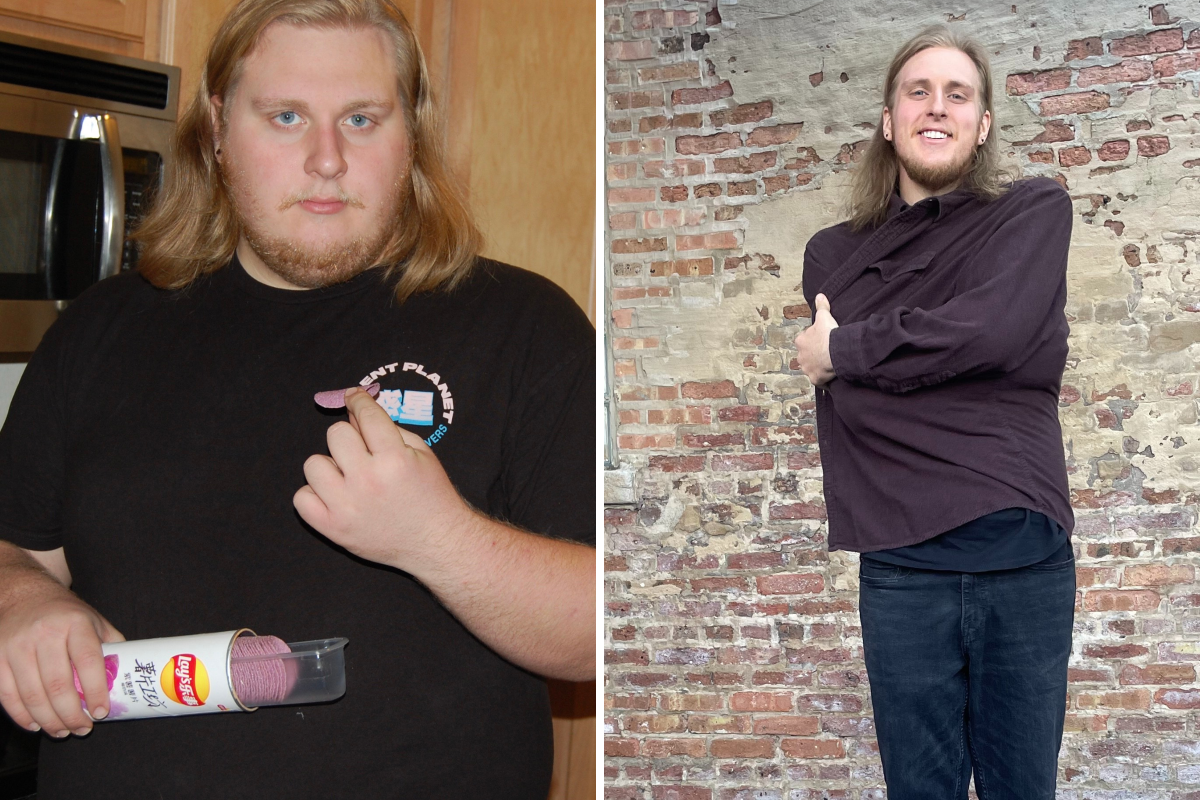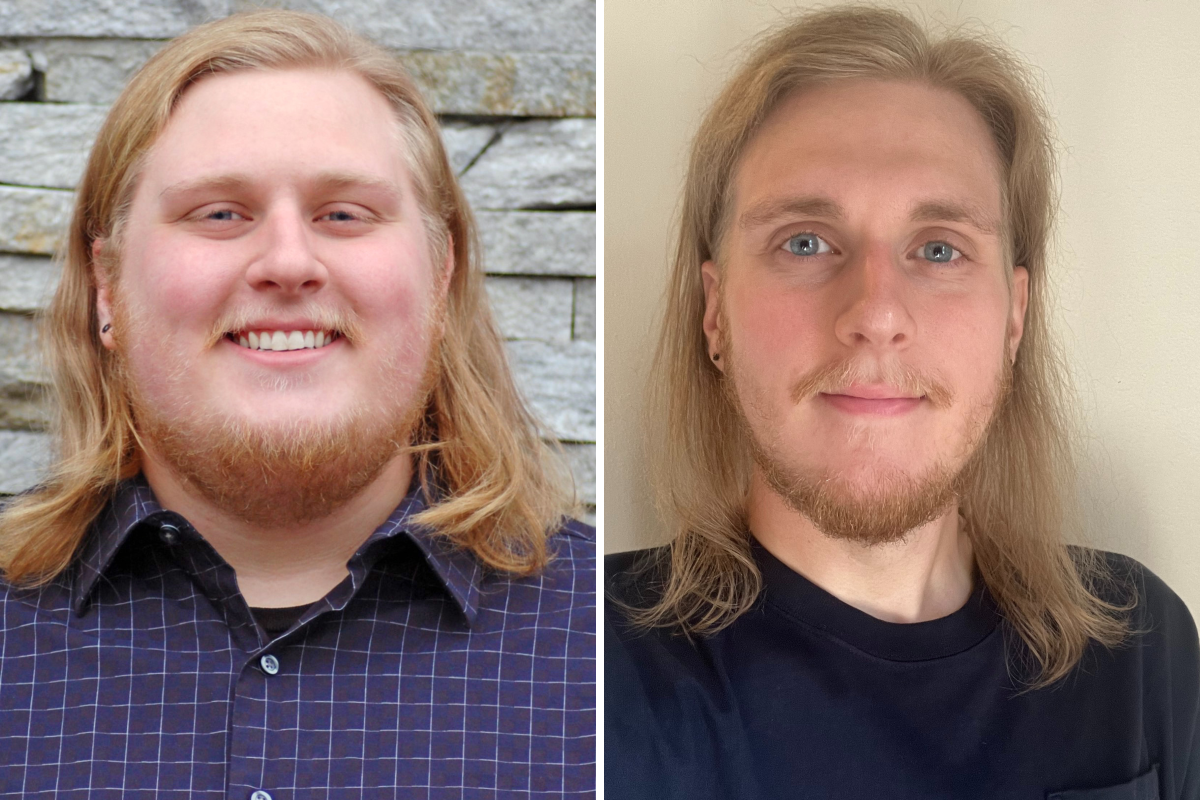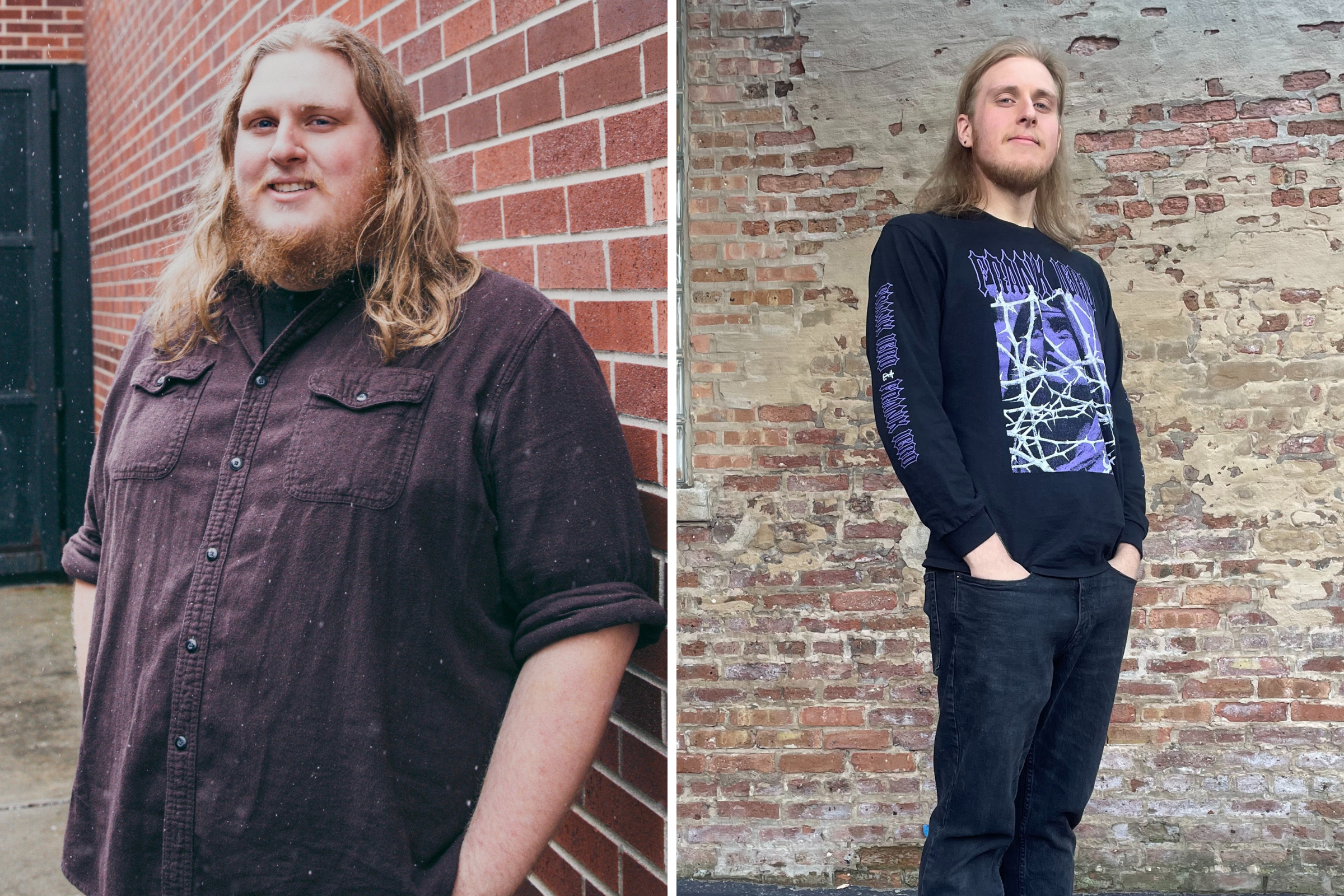A man has shared three things he did to lose 150 pounds, and it didn’t involve workouts or a gym membership.
On August 20, Noah Harned, 29, shared his transformation on Reddit under the handle /u/DankyStanker. His post has racked up 15,000 upvotes, and he has received plenty of praise from his fellow Redditors.
In an exclusive interview with Newsweek, Harned, who lives in Waukesha, Wisconsin, explained how he went from 340 pounds to 190 pounds in 18 months.
“I didn’t do any external exercising or go to the gym at any point,” he said. “I counted calories, did intermittent fasting and mild physical activity.”
Noah Harned
Intermittent Fasting
A May 2023 survey of 1,022 American adults conducted by the International Food Information Council found that the most common eating patterns or diets included high-protein (18 percent), mindful eating (17 percent), calorie counting (12 percent), clean eating (12 percent) and intermittent fasting (12 percent).
Harned, a package delivery driver, began fasting in 2020. “It was a thing I started to do to avoid gaining any more weight when I was my biggest,” he said.
For two years, he followed a 16-hour fasting routine, eating his first meal at 3 p.m. and his last at 11 p.m. During this period, he continued to eat junk food without paying attention to calorie consumption.
“It took me years to come to terms with starting a diet,” he said. “I was using food as a dopamine hit to hide from my dissatisfaction with my life and body. Knowing the problem and coming to terms with it are very different.”
“I knew what I had to do for years, but I didn’t have the strength to do it. I had eventually convinced myself that I’d rather enjoy my binge eating than ‘suffer’ a diet,” he continued.
Newsweek discussed the eating plan with Dave Asprey, who is best known as “the Father of Biohacking.” The health science entrepreneur, who lives in Austin, Texas, explained what happens when you switch between fasting and eating on a regular schedule.
“Your brain loves fasting,” the four-time New York Times bestselling author said. “When you fast, your body switches from burning glucose to burning fats. These fats get converted into ketones, which are powerful anti-inflammatory compounds.”
“Your neurons (brain cells), which require a lot of energy to perform, prefer using ketones for fuel over glucose,” Asprey continued. “This is because ketones provide more energy than glucose. When you’re fasting, you may notice more mental clarity and better focus. This is a result of more brain power coming from ketones.”
Calorie Counting
Harned eventually recognized the importance of prioritizing healthy eating to reach his goals. According to the American Psychological Association, men aged 26 to 30 should consume between 2,400 and 3,000 calories daily, depending on their activity level. Using a calorie-tracking app, Harned initially set his intake at 2,600 calories per day, gradually reducing it to 1,500 by the beginning of this year.

Noah Harned
“I finally found something that worked, and it was counting calories,” he said, adding that he was initially reluctant to try it after seeing a family member struggle with counting calories when he was a child.
“In January 2023, inflation was in full swing, and in a weird twist of fate, it helped me, as I would primarily eat fast food, and that was getting too expensive for me to keep up with,” Harned continued. This led to a “drastic” cut in his calorie intake, and he “unintentionally” dropped down to 300 pounds by the end of February 2023.
“I decided to stop being lazy and get back into cooking,” Harned said, adding that his staple meal, even to this day, was a chicken or beef stir-fry with white rice and various vegetables.
Harned learned how to make his favorite foods, including pizza, without exceeding his calorie limits. He swapped potato chips for popcorn and replaced sugary coffee with a pre-workout drink, while having the occasional sugar-free soda as a treat.
He said that while the lows were rare, maintaining discipline was challenging, as food was his addiction. Despite occasional “slipups” and cheat days that caused temporary weight gain, he refused to punish himself and instead focused on returning to his disciplined routine.
“As the weight started to fall, people began to notice, which was motivating and inspiring. The most significant moments were when I started to fit back in my older clothes,” said Harned, who now wears a size large top rather than XXXL.
The Benefits of Walking
Lindsay Bottoms, a reader in exercise and health physiology at the University of Hertfordshire in England, previously told Newsweek that walking has many benefits.
She said: “Increasing physical activity, such as your step count through walking, contributes to improved cardiovascular fitness, weight management, improved mood, better sleep and enhanced cognitive function.
“Walking can reduce the risk of developing chronic illnesses, such as dementia, and certain cancers. In some cases, it helps improve health conditions, such as type 2 diabetes.”
The Centers for Disease Control and Prevention recommends walking at least 10,000 steps per day, but Harned regularly exceeded this by at least 6,000 steps. He said, “I lifted boxes at work and walked around 16,000 to 22,000 steps daily.”
The Effect of Weight Loss on Overall Health and Well-Being

Noah Harned
In February, Harned hit his goal weight of 190 pounds, which is lighter than his weight as a freshman in high school. He said he had always struggled with his weight, which consequently led to physical health problems, such as aches and breathlessness, and poor mental health.
He said: “I disliked myself because of my body. I felt ashamed to go out in public … like I was some kind of ghoul out in broad daylight with everyone watching and judging me.
“I was never clinically evaluated, but I felt that I was mildly depressed, and that fed into my weight problem, and eating was one of the few things that made me feel good and temporarily forget my problems.”
Along with his fitness, Harned’s confidence and social skills have improved following his weight loss. He now works with a therapist to address his social anxiety and hopes to join a gym in the future.
“I have more energy. I can run again!” he said. “My high blood pressure has evened out to normal, and I don’t get out of breath so easily anymore.”
Harned added: “It’s been a new feeling to look in the mirror and like what I see. How I view myself is much more positive. My mental state is much better than before. I now feel more positive about the future.”
Is there a health issue that’s worrying you? Let us know via health@newsweek.com. We can ask experts for advice, and your story could be featured on Newsweek.
